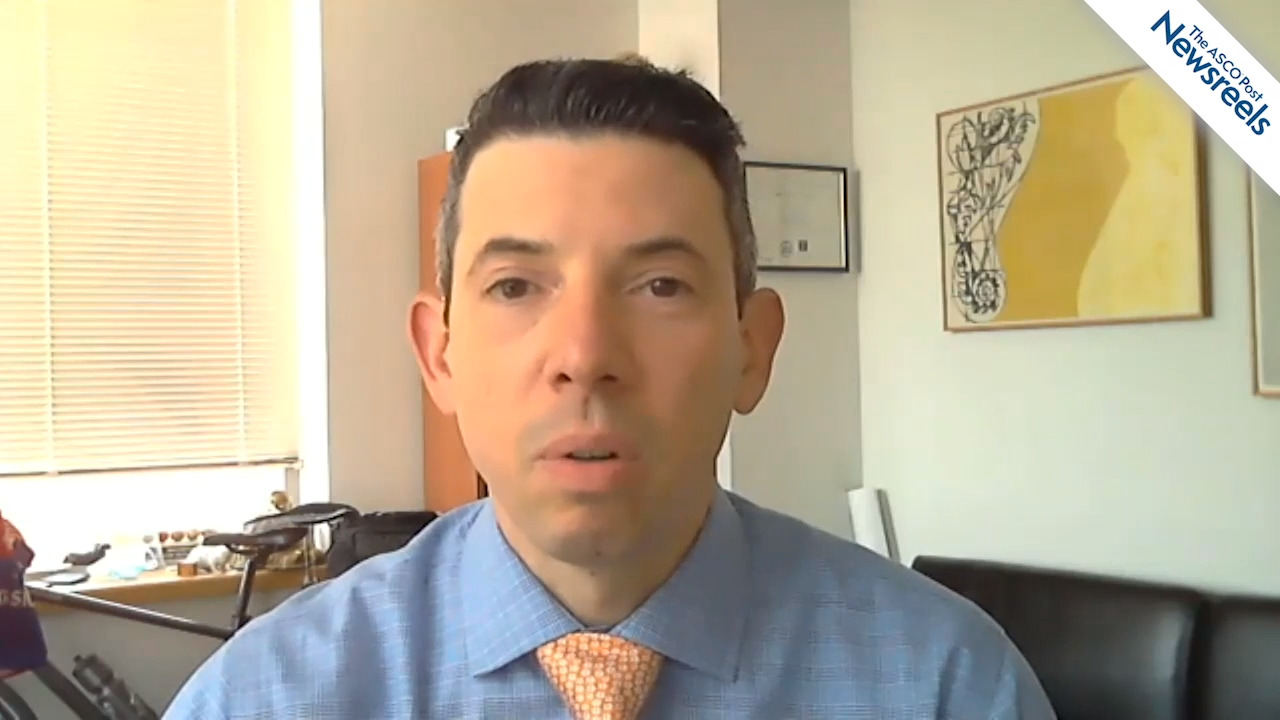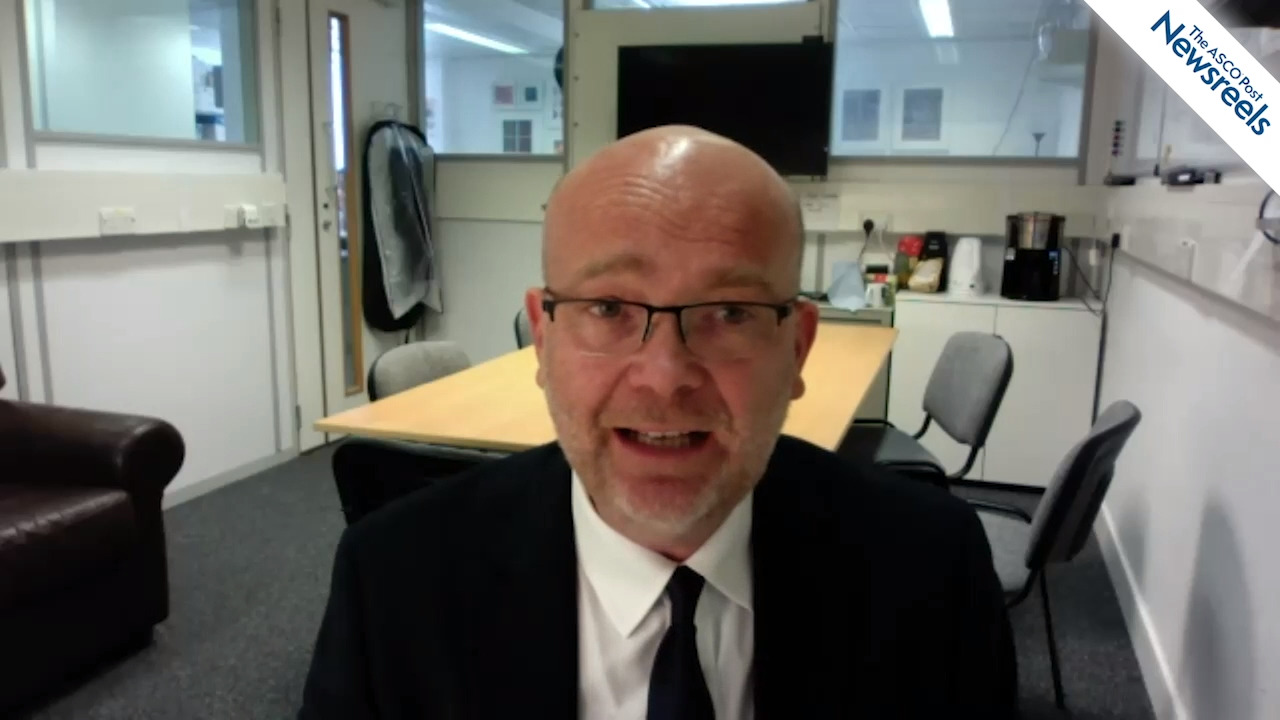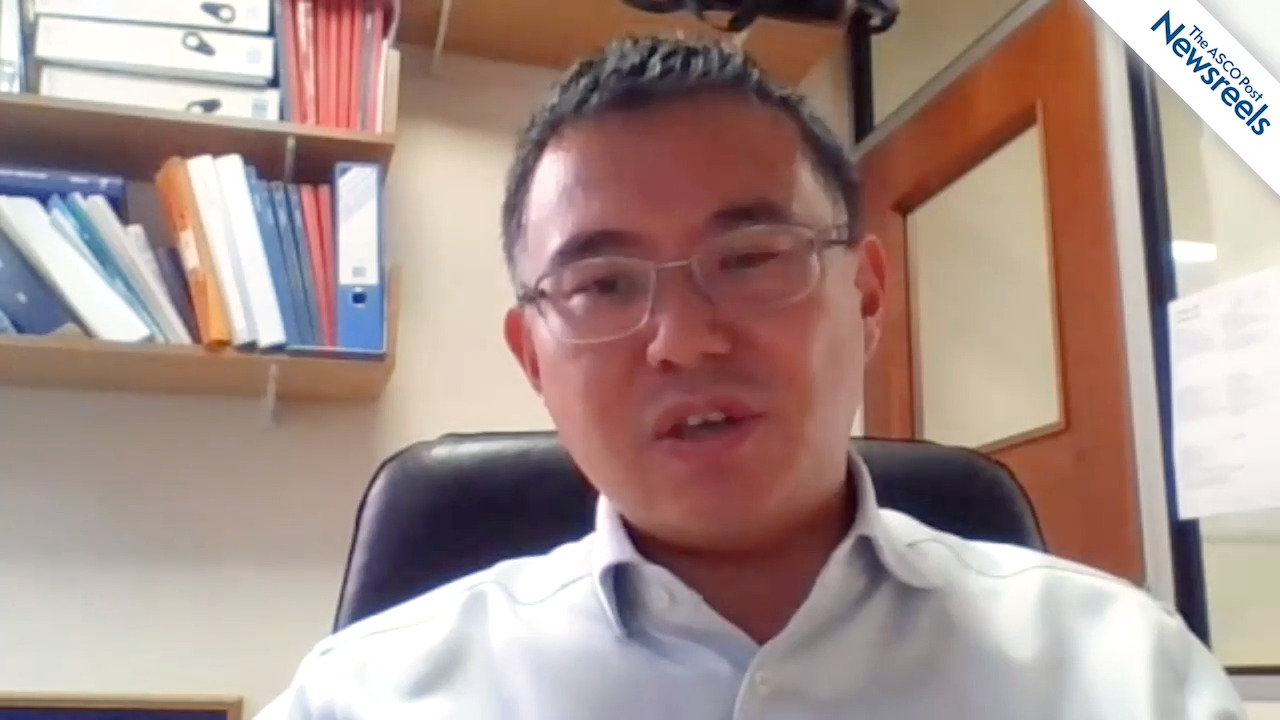Nicholas J. Short, MD, on ALL: Ponatinib Plus Blinatumomab May Help Patients Avoid Transplants
2021 ASCO Annual Meeting
Nicholas J. Short, MD, of The University of Texas MD Anderson Cancer Center, discusses early results from a phase II study which showed that combining ponatinib and blinatumomab in patients with Philadelphia chromosome–positive acute lymphoblastic leukemia may prove to be an effective chemotherapy-free regimen that might reduce the need for allogeneic hematopoietic stem cell transplant (Abstract 7001).
The ASCO Post Staff
Melinda L. Telli, MD, of Stanford University, discusses results of a phase II study on neoadjuvant talazoparib in germline BRCA1/2 mutation–positive, early HER2-negative breast cancer. In this setting, talazoparib monotherapy was active and yielded pathologic complete response rates comparable to those observed with combination anthracycline and taxane-based chemotherapy regimens (Abstract 505).
The ASCO Post Staff
Evan J. Lipson, MD, of Johns Hopkins University, discusses primary phase III results from the RELATIVITY-047 study, which showed that relatlimab plus nivolumab as a fixed-dose combination may improve progression-free survival compared with nivolumab monotherapy in patients with advanced melanoma. This is the first study to demonstrate a benefit from dual inhibition of the LAG-3 and PD-1 pathways.
The ASCO Post Staff
Andrew Tutt, PhD, MBChB, of the Institute of Cancer Research, London, discusses findings from the phase III OlympiA trial, which showed that adjuvant olaparib, a PARP inhibitor, following adjuvant or neoadjuvant chemotherapy, may improve invasive disease–free survival in patients with germline BRCA-mutated and high-risk HER2-negative early breast cancer, which might lead to a new indication in this setting (Abstract LBA1).
The ASCO Post Staff
Vamsidhar Velcheti, MD, of New York University, discusses overall survival and exploratory subgroup analyses from the phase II CodeBreaK 100 trial, which evaluated the use of sotorasib in pretreated KRAS G12C–mutant non–small cell lung cancer (Abstract 9003).
The ASCO Post Staff
Ian Chau, MD, of Royal Marsden NHS Foundation Trust, discusses first results of the CheckMate 648 study, which showed that nivolumab plus chemotherapy and nivolumab plus ipilimumab both demonstrated superior overall survival vs chemotherapy alone in patients with advanced esophageal squamous cell carcinoma. These regimens may represent potential new first-line treatment options (Abstract 4001).





